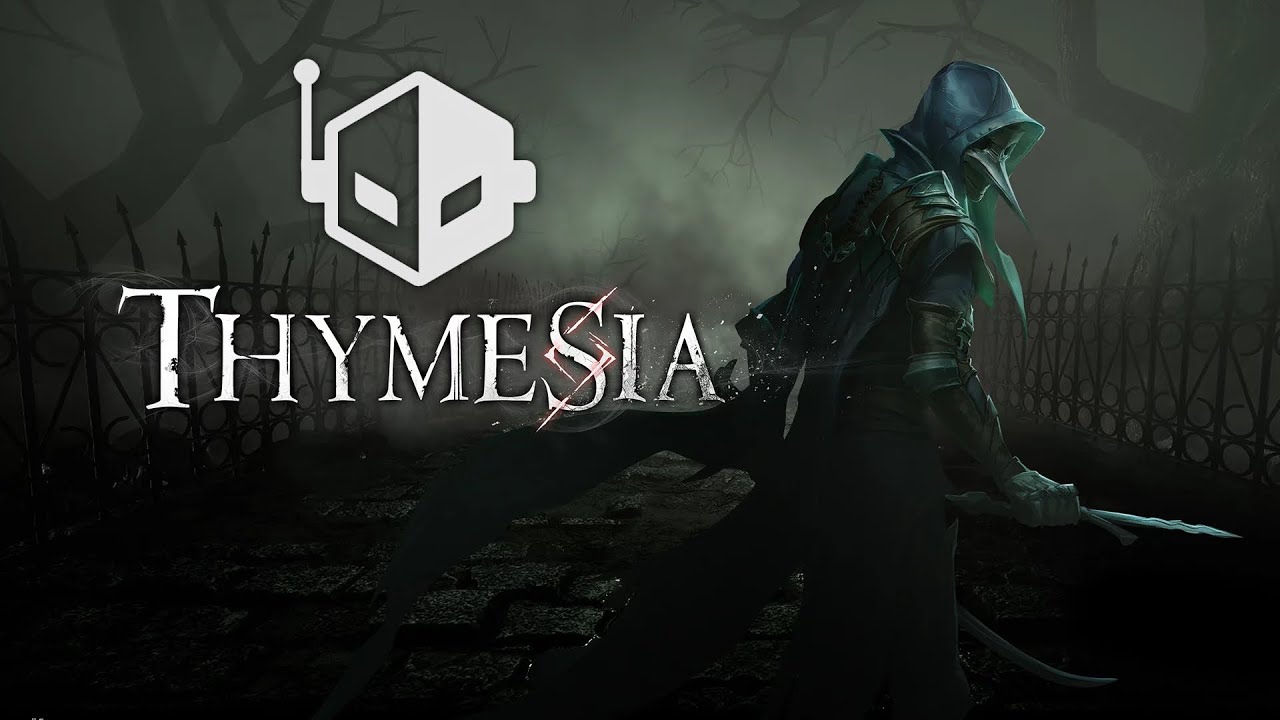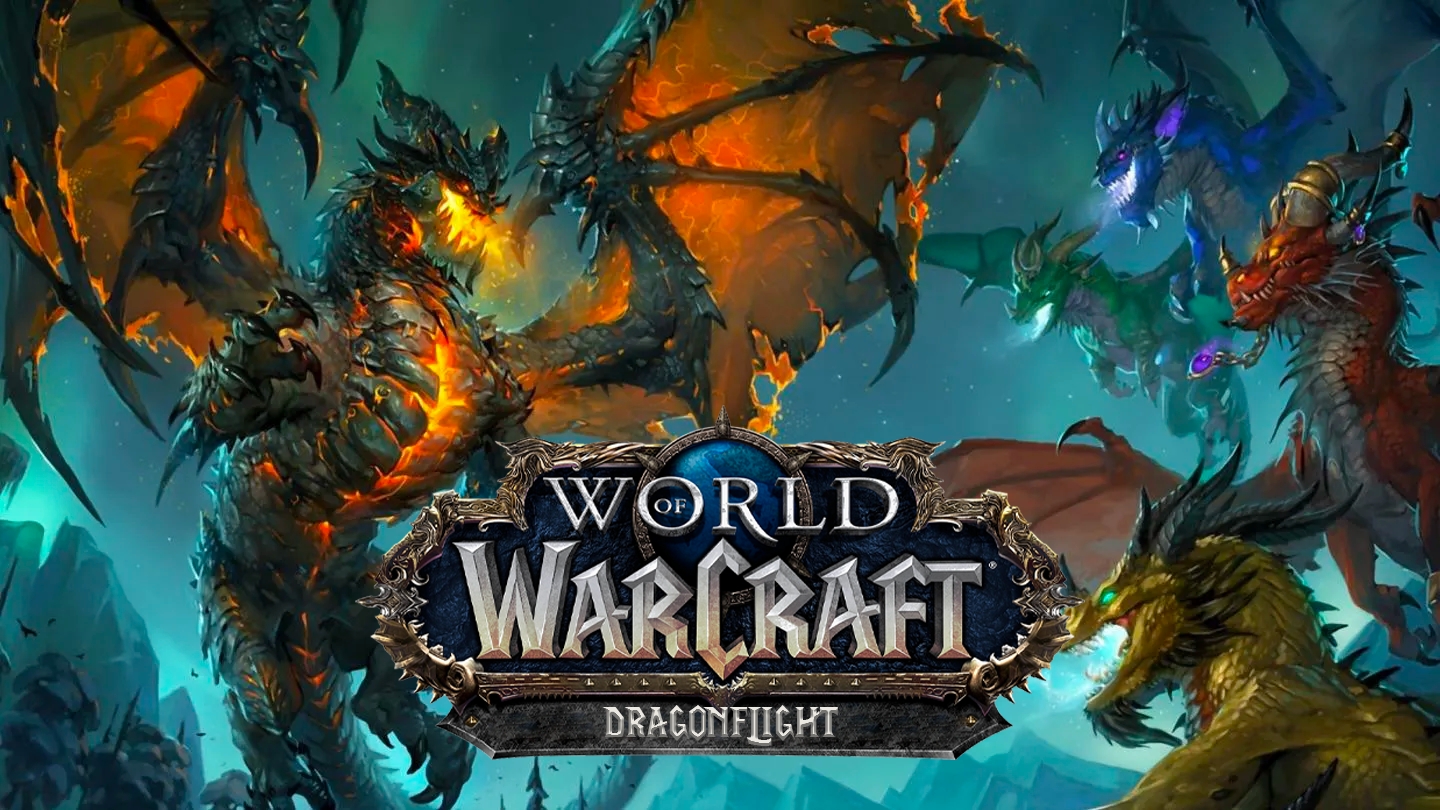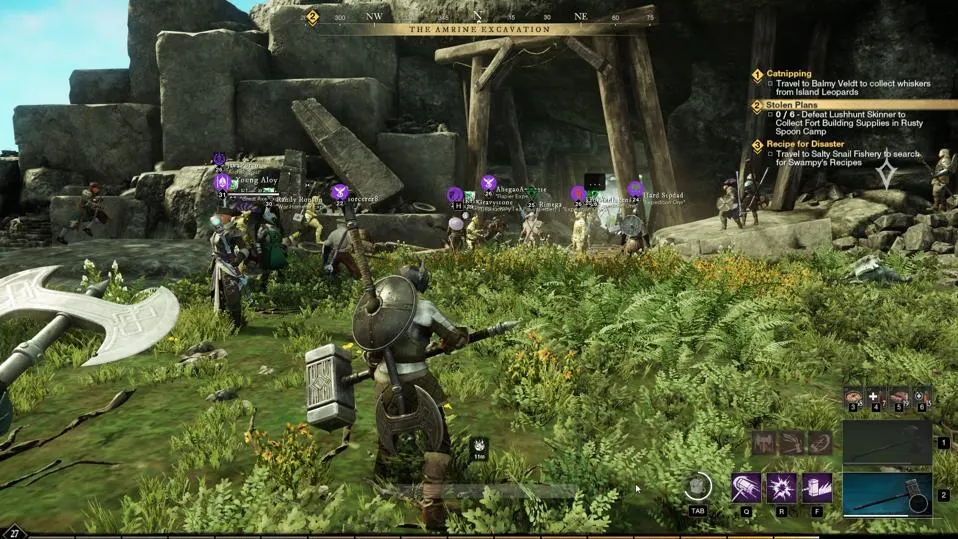Introduction
In the realm of action RPGs, the “Soulslike” subgenre has carved out a significant niche, appealing to gamers who crave challenging gameplay, deep lore, and atmospheric worlds. Thymesia, developed by OverBorder Studio and published by Team17, is one of the latest entries in this genre. Set in a dark, plague-ridden world, Thymesia brings a unique twist to the formula with its fast-paced combat and alchemy-based mechanics. In this comprehensive review, we will delve into the various aspects of the game, including its gameplay, story, graphics, sound design, and how it stands out in the crowded Soulslike market.
Gameplay and Mechanics in Thymesia
Thymesia Combat System: A Fast-Paced and Fluid Experience
Thymesia sets itself apart from traditional Soulslike games with its fast-paced combat system. The game’s protagonist, Corvus, wields a combination of weapons and alchemical abilities that allow for a dynamic and fluid combat experience. Unlike the deliberate and weighty combat of games like Dark Souls or Bloodborne, Thymesia encourages players to stay aggressive, chaining together attacks, dodges, and counters to overwhelm enemies.
Parry and Dodge Mechanics: Mastering the Art of Defense
One of the key features of Thymesia’s combat system is the emphasis on parrying and dodging. Timing is crucial, as successful parries not only deflect enemy attacks but also leave them vulnerable to counterattacks. Dodging, on the other hand, allows players to quickly reposition themselves, avoiding damage while setting up for their next move. The game rewards players who can master these mechanics, making combat both challenging and rewarding.
Plague Weapons: A Unique Twist on Traditional Armaments
Thymesia introduces a unique weapon system known as Plague Weapons. These are special abilities that Corvus can acquire from defeated enemies, allowing him to use their powers against other foes. Plague Weapons add a layer of strategy to combat, as players must choose the right weapon for the situation and manage their use effectively. The variety of Plague Weapons available also encourages experimentation, offering different playstyles and approaches to combat.
Alchemy and Character Progression: Crafting Your Path to Victory
Alchemy plays a significant role in Thymesia’s gameplay, serving as both a narrative element and a gameplay mechanic. Players can use alchemy to craft potions, enhance abilities, and unlock new skills. The game’s character progression system is intertwined with alchemy, allowing players to customize Corvus’s abilities to suit their preferred playstyle.
Potion Crafting: Enhancing Survival in a Hostile World
Potions are essential for survival in the harsh world of Thymesia. Players can collect ingredients from the environment and enemies to craft potions that restore health, increase damage, or provide other beneficial effects. The crafting system encourages exploration and experimentation, as different combinations of ingredients yield different results.
Skill Trees and Upgrades: Tailoring Your Abilities
Thymesia features a robust skill tree system that allows players to upgrade Corvus’s abilities and Plague Weapons. The skill trees are divided into different branches, each focusing on a specific aspect of combat, such as offense, defense, or alchemy. This system provides a high degree of customization, enabling players to build Corvus into a character that suits their playstyle.
Story and Lore
Thymesia’s Narrative: Unraveling the Mystery of Corvus
The story of Thymesia is shrouded in mystery, much like other games in the Soulslike genre. Players take on the role of Corvus, a mysterious figure tasked with uncovering the secrets of a plague that has ravaged the kingdom. The narrative is told through cryptic dialogue, environmental storytelling, and fragmented memories that Corvus must piece together.
The World of Thymesia: A Kingdom in Ruin
The world of Thymesia is dark, oppressive, and filled with danger. The game’s environments are meticulously designed to reflect the despair and decay caused by the plague. From abandoned villages to crumbling castles, each area tells a story of a once-thriving kingdom now on the brink of collapse. The atmosphere is thick with tension, drawing players into the world and compelling them to explore every corner in search of answers.
Characters and Factions: Allies and Enemies in a Dying World
Throughout his journey, Corvus encounters various characters and factions, each with their own motives and agendas. Some offer assistance, while others pose a threat. The interactions with these characters are often brief but impactful, adding depth to the world and the story. The game’s lore is rich with details, inviting players to dive deeper into the history and mythology of Thymesia.
Endings and Replayability: Multiple Paths to Redemption
Thymesia features multiple endings, each influenced by the choices players make throughout the game. These endings provide different perspectives on the story and the fate of the kingdom, encouraging multiple playthroughs to see all possible outcomes. The branching narrative adds to the game’s replayability, as players can experiment with different decisions and explore alternative paths.
Graphics and Art Style
Visual Design in Thymesia: Creating a Gritty and Immersive World
The visual design of Thymesia is one of its standout features. The game’s art style is heavily influenced by gothic and dark fantasy aesthetics, with detailed environments, grotesque enemy designs, and a muted color palette that enhances the sense of dread. The attention to detail in the world design is impressive, with every location feeling lived-in and contributing to the overall atmosphere of the game.
Character Models and Animations: Bringing Corvus and Enemies to Life
The character models in Thymesia are well-crafted, with Corvus and the various enemies he faces being richly detailed. The animations are smooth and fluid, particularly during combat, where the quick and precise movements of Corvus are a joy to watch. The enemy designs are suitably grotesque, reflecting the twisted nature of the plague that has overtaken the world.
Performance and Technical Aspects: Running Thymesia on Various Platforms
Thymesia runs smoothly on most platforms, with stable frame rates and minimal technical issues. The game’s performance is generally solid, even in more demanding areas or during intense combat sequences. However, like any game, it is not without its minor glitches or bugs, but these are relatively infrequent and do not detract significantly from the overall experience.
Sound and Music
Thymesia’s Sound Design: Immersing Players in the Dark Atmosphere
The sound design in Thymesia plays a crucial role in building the game’s oppressive atmosphere. From the eerie ambient sounds of the environment to the visceral impact of weapons clashing in combat, the audio contributes significantly to the player’s immersion. The game’s use of sound is particularly effective in creating tension, with subtle audio cues signaling the presence of unseen threats.
Voice Acting and Dialogue: Bringing the Characters to Life
While Thymesia is not heavily reliant on dialogue, the voice acting that is present is well-executed. The characters’ voices are suitably somber and reflective of the game’s dark tone. The dialogue, while sparse, is meaningful and often cryptic, leaving much to the player’s interpretation. This approach to storytelling is in line with the game’s overall design philosophy, emphasizing atmosphere and mood over explicit narrative.
Music and Soundtrack: Setting the Tone for the Journey
The soundtrack of Thymesia is haunting and evocative, perfectly complementing the game’s dark fantasy setting. The music ranges from subtle, atmospheric tracks that underscore the player’s exploration of the world to more intense compositions that accompany the game’s challenging combat encounters. The soundtrack is a key component of Thymesia’s overall atmosphere, enhancing the emotional impact of the game.
Reviews
Critical Reception of Thymesia: Praise and Criticism
Thymesia has received generally positive reviews from critics, with many praising its unique take on the Soulslike formula. The fast-paced combat, fluid mechanics, and atmospheric world have been highlighted as the game’s strengths. However, some critics have pointed out that the game’s difficulty curve can be steep, particularly for players who are new to the genre. Additionally, while the game’s visual and audio design has been praised, some have noted that the story can be difficult to follow due to its cryptic nature.
Key Points from Critic Reviews
- Combat: Critics have lauded Thymesia’s combat system, particularly its emphasis on speed and precision. The combination of melee attacks, Plague Weapons, and alchemical abilities provides a fresh take on the genre’s combat mechanics.
- Atmosphere: The game’s dark and oppressive atmosphere has been widely praised, with reviewers highlighting the detailed environments and haunting soundtrack as standout features.
- Difficulty: While the challenge of Thymesia is a selling point for many, some critics have noted that the difficulty can be a barrier for players unfamiliar with Soulslike games.
Conclusion
Thymesia is a compelling entry into the Soulslike genre, offering a unique blend of fast-paced combat, deep customization, and a richly atmospheric world. While the game is challenging, it rewards players who are willing to master its mechanics and explore its dark, plague-ridden world. With multiple endings, a robust skill tree system, and a hauntingly beautiful visual and audio design, Thymesia stands out as a must-play for fans of the genre. Whether you’re a seasoned Soulslike veteran or a newcomer looking for a fresh challenge, Thymesia offers an engaging and rewarding experience.
Frequently Asked Questions
What platforms is Thymesia available on?
Thymesia is available on multiple platforms, including PlayStation 5, Xbox Series X/S, and PC. The game is also accessible via cloud gaming services, allowing players to experience it on a wider range of devices.
How long does it take to complete Thymesia?
The length of time it takes to complete Thymesia can vary depending on the player’s skill level and playstyle. On average, a single playthrough can take between 15 to 25 hours. However, the game offers multiple endings and encourages replayability, so completionists may spend more time exploring all the content.
Is Thymesia suitable for players new to the Soulslike genre?
While Thymesia is challenging, it may be accessible to players new to the Soulslike genre due to its faster-paced combat and customizable difficulty options. However, players should be prepared for a steep learning curve and challenging gameplay.
Does Thymesia have multiplayer or co-op features?
Thymesia is primarily a single-player experience and does not feature traditional multiplayer or co-op modes. The game’s focus is on delivering a tightly crafted solo adventure with a strong emphasis on combat and exploration.
What are Plague Weapons in Thymesia?
Plague Weapons are special abilities that Corvus can acquire from defeated enemies. These weapons allow players to use enemy powers against other foes and add a strategic layer to combat. Players can customize their loadout with different Plague Weapons to suit their preferred playstyle.
How does character progression work in Thymesia?
Character progression in Thymesia is tied to the skill tree and alchemy systems. Players can unlock and upgrade abilities, enhance Plague Weapons, and craft potions to improve their chances of survival. The game offers a high degree of customization, allowing players to tailor their character to their playstyle.



